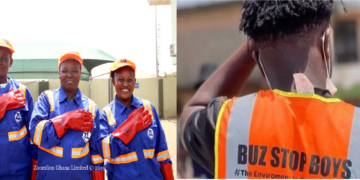Ghana Veg, a dutch sponsored programme, has held a forum for vegetable farmers and researchers to discuss ways in bridging research gaps and using research to improve vegetable production.
The forum held in Accra on the theme: “Demand-driven Research for a Private Sector-led Growth in Ghana’s Vegetable Sector”, was organised in collaboration with the Institute of Applied Science and Technology of the University of Ghana.
It was to provide the platform to analyse key challenges facing the vegetable sector as well as to share available research solutions and initiatives with the private sector.
Current trends in the production of vegetable crops for both domestic and export market show certain challenges, especially with regards to European Union standards.
Mr Hanson Arthur, Fund Manager of GhanaVeg, said the forum was being held to bring research to the doorstep of the private sector so they could best present issues affecting vegetable production to enable the researchers help find better solutions to address farm loses.
He said at the end of the discussions, participants would be encouraged to put their outcomes into proposals of which the GhanaVeg R&D Innovation Fund would be made available to sponsor researches in those areas.
He, however, emphasized the need for extensive farmer education on the proper use and application of fertilisers and other agro chemicals for them to get the best results from the use of such chemicals to increase their yields.
Mr Joep van den Broek, the Programme Leader of GhanaVeg, said research was relevant in addressing the challenges that the commercial vegetable sector faced in terms of pests, diseases, soil and climate change.
He explained that such research would help improve the quality of produce in vegetable farming that would also boost better and healthy lifestyles and also to create economic opportunities for the private sector.
He said GhanaVeg was poised to help ensure that the commercial vegetable sector worked effectively to meet local and international market demands since there were readily available markets for vegetable producer to explore.
Dr Agyemang Danquah, a Lecturer at the Crop Science Department of the University of Ghana, in a presentation, said over the years, there had been little funding to support vegetable production in the country unlike other areas of food production.
He said since the vegetable sector had higher potentials there was the need to put up sustained funding for research into vegetable breeding as well as to equip breeders with technique and skill to enable them to breed more vegetables breeds that were resistant to Ghana’s weather conditions.
Mr Kwabena Adu-Gyemfi, a representative of the farmers, emphasised the need for improved crop varieties that were adaptable to Ghanaian environment and to find the right chemicals that could properly kill fungi and pests that undermine crop yield.
“We also need to look at the seeds that we grow, the testing of soil that are suitable for particular vegetables to reduce loses and improve our yield,” he said.
















